
| Adam Mickiewicz (1798-1855) |
  
Adam Mickiewicz was a member of famous nobleman family Rimvydţiai-Mickevičiai. The family lived in the very ethnographical margin of Lithuania, in Rodűnë region. At the end of the 17th century the family moved to Naugardukas. The native language of Mickiewicz was Polish; nevertheless they considered them to be Lithuanian noblemen.
Mickiewicz finished Naugardukas School in 1815 and entered Vilnius University where he studied Polish and other nation’s literature. He was also interested in history (also Lithuanian history) very much. It became very meaningful in his works after some time.
He started to work in Kaunas region school after he graduated from the Vilnius University in 1819.
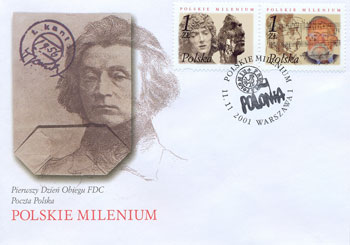
He taught literature, the Latin language, antique history, poetry, rhetoric, grammar and even political economy. Teaching these subjects required a lot of time and hard work. He lacked pedagogical and methodical knowledge. Nevertheless he tried to do his job as good as he could. He made notes very carefully. He read his lectures from them. He dictated for students of lower classes because there were no textbooks at that time. He participate in the meetings of philomates in Vilnius and he also used too send letters to his friends very often. He was the leader of philomates literature division. There his works were discussed as well.


In 1820 the poet was shocked by the death of his mother. Moreover, in 1821 he experienced a painful drama of his heart. His beloved Maryl Veređčiak married a rich earl. These events shock the youngster and all these feelings were expressed in his poem ‘All Soul's Day’ written in Kaunas.
During his first years teaching in Kaunas, he wrote the song ‘Adam’ and the famous song ‘Philarets song’. He also created a number of ballads and romances in Kaunas. There is one important moment in the works of the young poet: the youthful protest against the licence of the rich and powerful.
 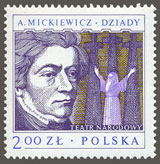
In 1823 the second collection of his poems appeared. But because of the government of czar the poet was arrested in 1823, October 23. He was imprisoned for six months in Bazilijons nunnery, in Vilnius. In 1824, March 21, he was released and in 1824, October 25 he from Vilnius to Sankt Peterburg. He familiarized there with future-be decabrists such as K.Rylejev, A. Bestuzhev etc. Their ideas were very close to these of the writer (to abolished bondage etc).
   
He lived in Odesa for some time. Crimea made a great impression on the poet. As a result the collection of sonnets appeared (‘Sonnets of Crimea’). In some of them the name of Lithuania was mentioned. When he got a job in Moscow, he made relations with Russian intellectuals. He read his poems in the parlour of Duchess Zinaida Volkonskaja. His works were interesting and valued to a great number of Russian writers and journalists of that time.
 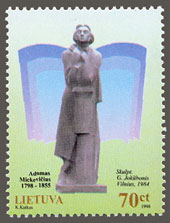
 
He was helped to move to foreign countries by his friends in 1829. The new about the rebellion (1830) in Lithuania and Polan came when he was in Roma. Mickiewicz wanted to take part in the rebellion but he could not realize his plan because of different reasons. In 1831 he came near the border of Poland but the rebellion was already over. Since 1840 he taught the course of Slav literature in Paris. He also familiarized his students with Russian and Polish literature.
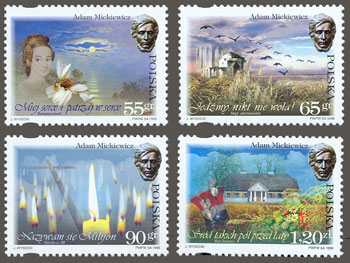
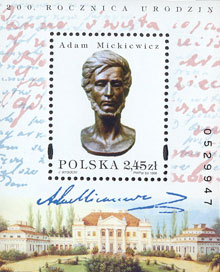 
He also taught the mythology of Lithuania, as well as its language and history. When revolutions began in Europe, in 1848, he went to Italy in order to organize Polish legions for the fight with Austria. Austria was joined the South parts of Poland for itself at that time. When the war between Russia and Turkey started, the hopes to re-establish the common republic of Poland – Lithuania were revived. At that time, Mickiewicz moved to Konstantinipolis where Polish troops were organized. He died in 1855, November 26 because of cholera in Constantinopolis. The poet was buried in Paris but his body was moved and buried in the Cathedral of Wavel, in Cracow, in 1890.

The poet entered the world’s literature as an agonistic romanticist. He strongly protected individual and national freedom, he protested against the authority. He cherished love to his native country and its history as well. As most poets romanists of that time he called himself – “gente lithuanus, natione polonus”. Historical poems ‘Graţina‘, and ‚ „Konrad Valenrod‘ exalted the nation of Lithuania, as well as its strong-willeness and patriotism. Lithuanian nature is patronized in these poems as well as in ‘Mister Thaddeus’. His works encouraged national movement of Lithuanians and had a great influence on Lithuanian literature in general.

 
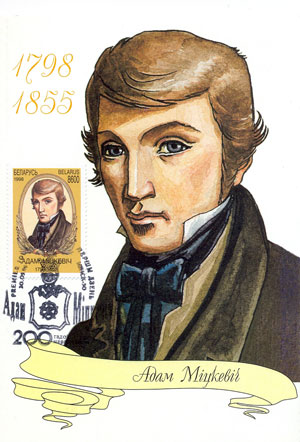



1967 Vilnius University. Mickiewicz yard.
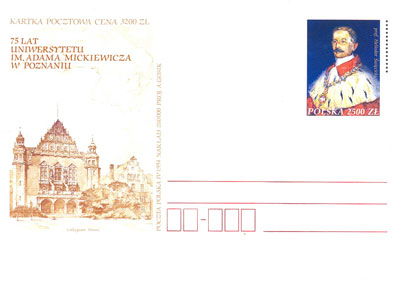


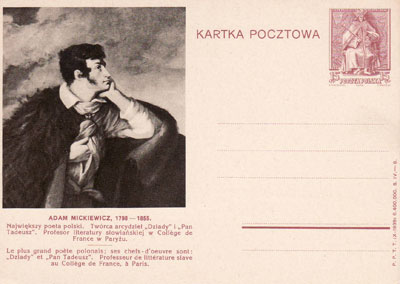
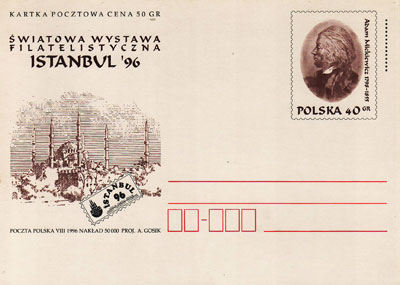
 
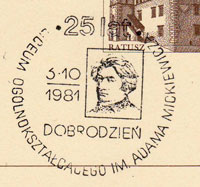 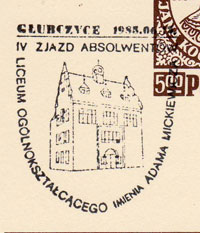

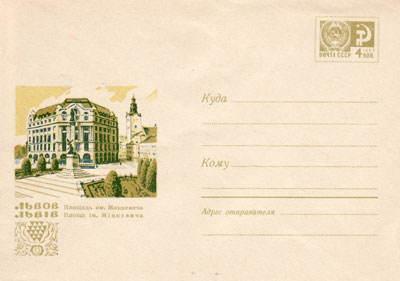


|